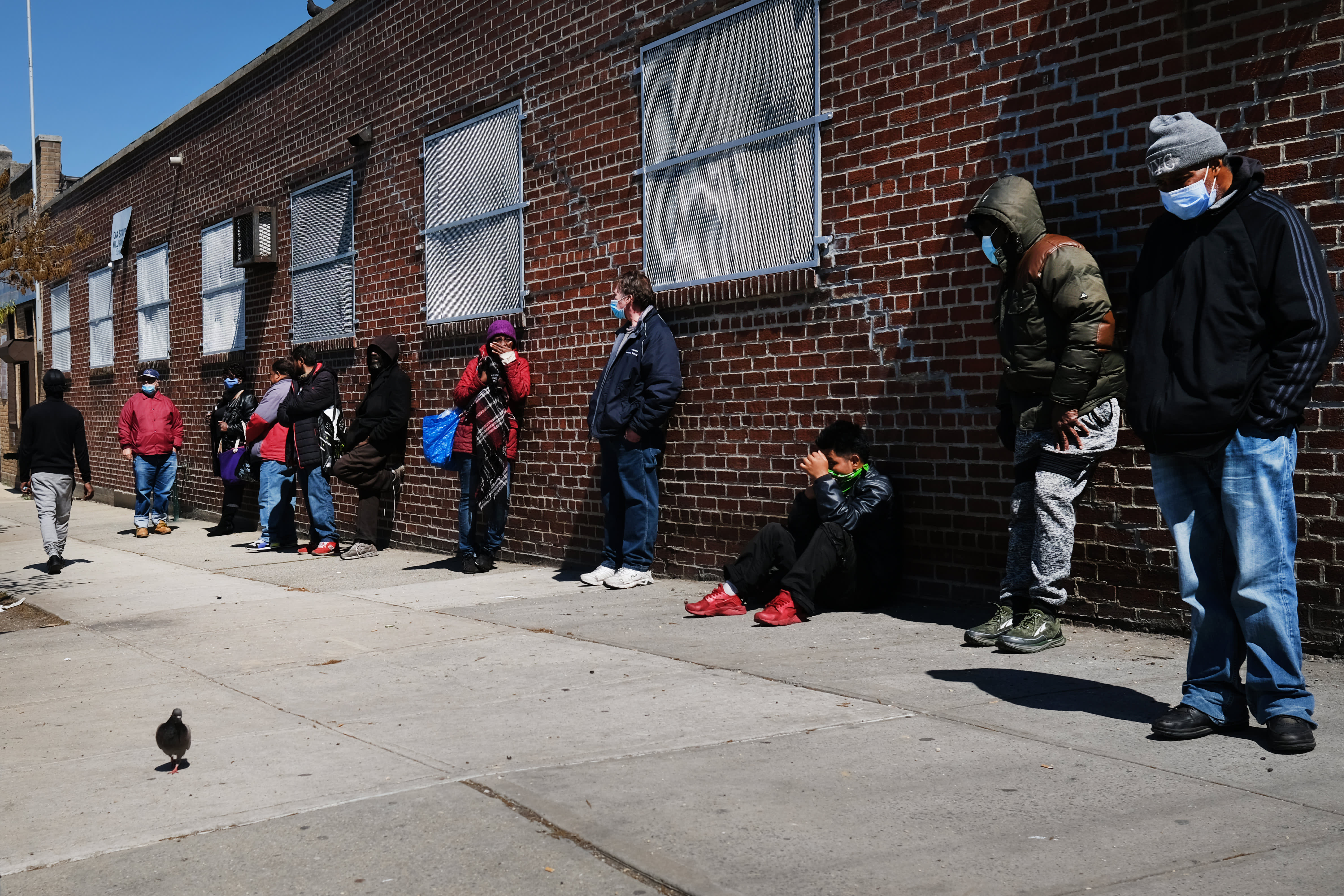People wait in line at a food bank in Brooklyn, New York, on April 28, 2020.
Spencer Platt | Getty Images News | Getty Images
The end of a $600 weekly boost to unemployment benefits over the summer is rapidly pushing more households to the brink of financial ruin.
The federal unemployment subsidy, enacted by the CARES Act coronavirus relief law in the early spring, lapsed at the end of July.
That left millions of workers with just their state-allotted benefits, which generally replace about half of lost wages, though sometimes much less.
More from Personal Finance:
How seniors and their money would fare under a Trump or Biden presidency
5 things to watch out for during open enrollment
It’s enrollment time for Obamacare. You might qualify for financial help
Fewer workers have been able to pay their bills on time and are more likely to lack short-term savings for emergencies, for example, according to a new paper published by researchers at Harvard University, George Washington University and the University of Oxford.
The lapse of the $600 unemployment boost led to a 50% to 100% increase in such “financial fragility” — a measure of how close to the edge families are living — among the unemployed, the researchers found.
”We cut off the lifeline these households were relying on,” said Daniel Schneider, a professor of public policy at the Harvard Kennedy School and a co-author of the research. “Of course it got worse. And it got worse fast.”
Families were financially stressed even before the coronavirus pandemic. As many as 27% of U.S. households were financially fragile in January, for example, according to the paper.
But the recession exacerbated that trend, particularly among the unemployed, according to researchers. That’s led to growing financial fragility among certain demographic groups, such as lower-wage workers, minorities, the less-educated and women, who were more likely than others to become unemployed as a result of Covid-19, according to the Harvard, George Washington and Oxford researchers.
“It’s not that all households got a little less secure,” Schneider said. “Some households got a lot less secure, and others carried on.”
‘Real change’
The share of unemployed workers unable to pay their bills on time doubled to 22% between August and October, according to the researchers.
Further, 29% of unemployed workers were spending more than their household income in October, up from 19% in August. Nearly half lack short-term savings, up from 38% two months earlier.
Meanwhile, the respective shares for those with full-time jobs was far lower, and hardly budged over the same time period.
The Trump administration gave an extra $300 a week to unemployed workers as part of a Lost Wages Assistance program created in August. Those funds only lasted up to six weeks.
“What we started seeing in September and October was a real change,” Schneider said of the financial stress among the unemployed.
Nearly 23 million Americans were still collecting unemployment benefits as of Oct. 10, according to most recent Labor Department data. More than 1 million workers continue to file new applications for benefits each week, between state and federal programs.
The research findings are broadly in line with other studies published in recent weeks.
Unemployed workers roughly doubled their liquid savings between March and July, when they were receiving the $600-a-week unemployment boost, according to a paper published last month by the JPMorgan Chase Institute.
However, they spent two-thirds of that savings in August alone, suggesting savings might soon be depleted absent additional relief.
Unemployed workers likely only have enough savings left to sustain their summer spending levels (when they were receiving the $600 boost) through mid-December, at most, according to Ernie Tedeschi, an economist at Evercore ISI.
It’s likely many families starting exhausting savings earlier, as recently as last month, according to his analysis, published in October.
